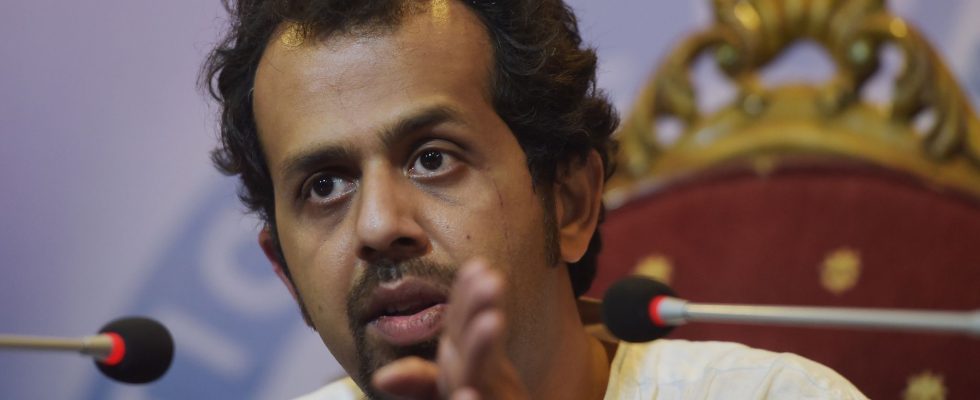The life of Taha Siddiqui looks like a graphic novel published by Glénat editions. Or if you prefer, a 12-episode season in hell available on the platform of your choice. It happens in the country of the hand cutters, there are cops everywhere, bearded men and veiled women, kidnappings, muggings, and teenagers who watch a porn film at the risk of their lives. There are recognizable good guys and bad guys, and a storyline based on the violent absurdity of today’s world, one that’s cracking at every turn, that reminds me of that old Damart rag that Dora keeps wearing the House. Every Sunday, she spends an hour mending this herd which no longer has either color or shape, repeating that she loves it too much to throw it away. Is it a sweater, a t-shirt, a neck warmer? It’s the lace of wear and tear that has its charm, like today’s world, of which we don’t know what will become. That’s what excites Sabyl, it seems. Back from Lebanon, he talks about his country like a child leaning over the volcano. He says he’s not afraid, he’s curious which of the wars is going to blow everything up for good.
Today, Taha Siddiqui runs a bar, rue Richer, in the 9th arrondissement of Paris, a stone’s throw from the Folies Bergère. The Dissident Club, that’s its name, doesn’t open until happy hour, and the closing time depends on the mood. It’s a bit of a refuge for Pakistanis in exile. We meet Sara Farid, photographer. We attend meetings where we talk about what is going wrong, before a DJ tries to make customers believe that everything will be fine thanks to the music. There are painters, writers, partygoers, neighbors, and even journalists, ecologists, Darmanin shouldn’t find out.
Taha Siddiqui and Hubert Maury have produced a 260-page graphic novel that tells how the child born by accident in Jeddah, Saudi Arabia, where his father had found work in an airline, finds himself thirty-eight years later managing of this bar. It’s thrilling to send shivers down your spine. In Jeddah, his father wants to be more Muslim than Islam. The upstart terrorizes little Taha and his little brother Mustafa with the rules in force in his adopted country; everything goes there, from the integral (and phonetic) learning of the Koran at the madrasa, through weekends in Mecca, sexual repression, hatred of Shiites, demonization of America and… admiration for Ben Laden. As you can imagine, Tahar is going to have bad encounters that will distract him, deradicalize him, until he doubts his father’s word.
We are afraid for him until the end
This part of the album may inevitably remind us of a certain Arab of the future, we take equal pleasure in it, amazement and indignation included. But Maury’s line has a different grace than Sattouf’s, it allows the big turn which, halfway through, gives the work the dimension of an adventure novel, full of geopolitics. Because, back in Pakistan, having become a journalist, Siddiqui will really risk his skin. We repeat to ourselves that he will get away with it since he owns a bar on rue Richer. Nevertheless, we are afraid for him until the end. And again after. I can’t resist an anecdote. Before obtaining the Albert-Londres prize, Siddiqui interrogated the Pakistani Prime Minister at the time, Shaukat Aziz, about Benazir Bhutto, who was sentenced to five years in prison in absentia. All smiles, the Prime Minister replied: “If we were in a dictatorship, would you be allowed to ask me such questions?” Does it remind you of anything? But, yes, the other day, in Holland, when Macron replied to one of his disruptors: “The proof that we are in a democracy: you have the right to interrupt me.” Gentlemen specious, good evening. Some say that it will soon be necessary to leave France to open Dissident Clubs… But where?
